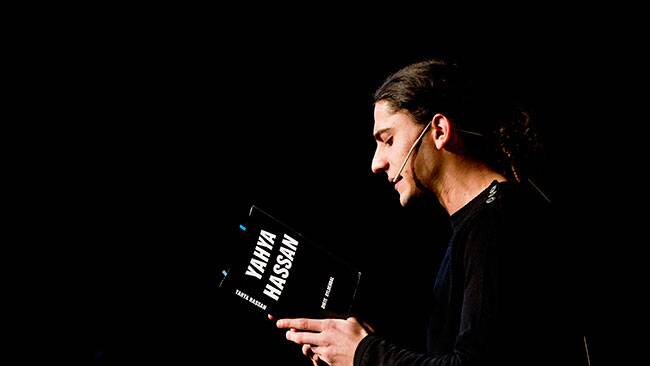I saw Yahya Hassan read once, in Copenhagen for a crowded room. All of Denmark's cultural elite were there, everyone had come to see him and everyone was white and middle-aged.
He wore a suit and had the curly hair in a neat knot. He got up on stage and started reading. Rhythmic and aggressive, like a steam roller, yet elegant in some way. Each syllable had its place. Hassan read everything from his mobile, locked the screen and got off stage.
That somehow made him unreachable, perhaps a little arrogant. He did not need their applause. At the same time, the Danes' relationship to poetry, as well as politics, will always be characterized by one before and one after Yahya Hassan.
His passing feels as dramatic as his entry into the Danish public. He was 18 years old with such power in words that he shook the whole of Denmark's cultural sphere. Yahya Hassan was as hated and hailed.
In his 2013 debut , Hassan wrote about his upbringing in what he called the ghetto, in Aarhus. He wrote about the travels to Palestine in childhood and accused Muslims of being hypocrites. This aroused great debate on the cultural sites in Denmark, and eventually also in Sweden.
The poetic - and sometimes actually humorous - poems had a huge impact. The book was printed in 122,000 copies, a record among debut poets in Denmark.
Hassan only wrote in capital letters. They came as a bang, he screamed the reader in the face. With his form he entered a literary tradition. Many derive the capital letters from the great Danish point poet Michael Strunge, who at the age of 27 took his life.
Yahya Hassan shot wildly around him - figuratively and literally. He struck in every direction, without mercy. The anger over Islamism on the one hand, and racism on the other, had long been boiling within him. He hated his parents, and especially the class community.
Hassan lived under the threat of death for several years. He was escorted by a bodyguard and did interviews in bulletproof vest. His life was characterized by drugs, violence and crime - something the public could see on his social media.
On Instagram there was a picture of him with Knausgårds My fight in one hand and a baseball tree in the other. It somehow sums up his whole person. The high cultural that meets the boundless.
It was the duality that made him special. He played with the words as only our greatest writers can. He came from nothing, and he was a poetic genius.
We will never know what Yahya Hassan would have written if he had continued to live. All we can do is read Yahya Hassan 2 and remember an icon.

